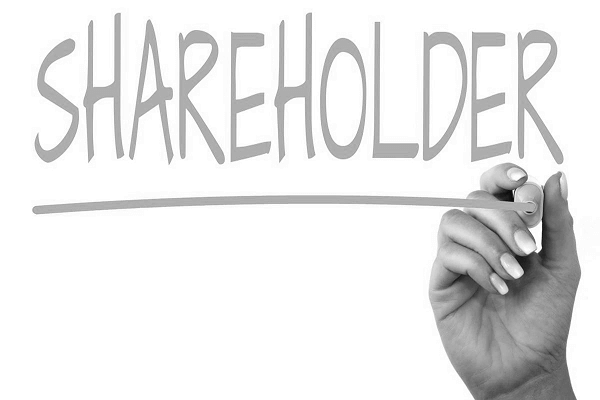Shareholder
What is a Shareholder?
A shareholder, commonly referred to as a stockholder, is any person, company, or institution that owns at least one share of a company’s stock. Shareholders are owners of the company, they reap the benefits of the company's success in the form of increased stock valuation.

If the company performs poorly and the price of its stock declines, then the shareholders can lose money.
Shareholder Details
a. Shareholder
Unlike the owners of sole proprietorships or partnerships, corporate shareholders are not personally liable for the company's debts and other financial obligations. If the company becomes insolvent, its creditors cannot demand payment from shareholders.
Although they are partial owners of the company, shareholders do not manage operations. An appointed board of directors governs the company's activities and operations.
b. Shareholder Rights
Shareholders enjoy certain rights, which are defined in the corporation's charter and bylaws:
- To inspect the company's books and records
- To issue the corporation for misdeeds of the directors and officers
- To vote on major corporate matters, such as who sits on the board of directors and whether a proposed merger should occur
- To receive a portion of any dividends the company declares
- To attend, in person or via conference call, the corporation's annual meeting to learn about the company's performance
- To vote by proxy through the mail or online when not attending a voting meeting
- To receive a proportionate allocation of the proceeds if a company liquidates its assets (however, creditors, bondholders, and preferred stockholders have precedence over common stockholders)
The specific rights allocated to both common and preferred shareholders are outlined in each company's corporate governance policy.
Talk to our investment specialist
c. Common vs. Preferred Shareholders
Many companies elect to issue two types of stock: common and preferred. Most shareholders are common stockholders primarily because common stock is less expensive and more plentiful than preferred stock. Common stock is generally more volatile and more likely to generate profits compared to preferred stock, but common stock holders have voting rights.
Preferred stockholders generally have no voting rights because of their preferred status. They receive fixed dividends, generally larger than those paid to common stockholders, and their dividends are paid before common shareholders. These benefits make preferred shares a more useful investment tool for those primarily looking to generate annual investment income.
All efforts have been made to ensure the information provided here is accurate. However, no guarantees are made regarding correctness of data. Please verify with scheme information document before making any investment.






Outstanding
Is me bahu ache se samjaya gaya hi